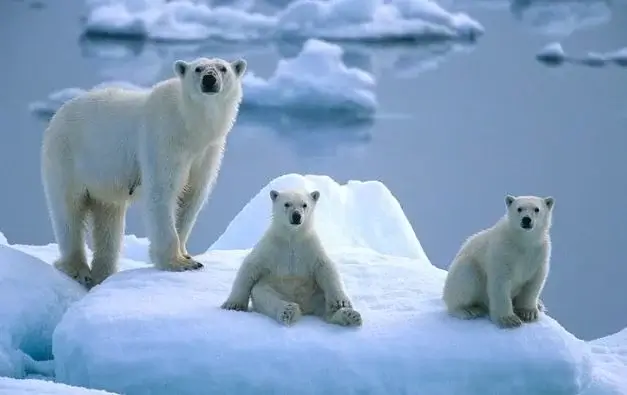The highest temperature ever recorded in the Arctic was officially confirmed by the United Nations World Meteorological Organization (WMO), signaling a wake-up call about climate change.
Scientists have even warned that a sharp rise in temperature in the Arctic could lead to the death of polar bears by the end of this century.
The temperature, "Mediterranean" 38 degrees Celsius, which was recorded in the Siberian city of Verkhoyansk in June 2020, was measured at the peak of a prolonged heat wave. In fact, temperatures across the region averaged 10 degrees Celsius above normal that summer, the WMO said in a statement.
“This new Arctic record is one of a series of observations submitted to the WMO Weather and Climate Extremes Archive that are sounding the alarm about our changing climate,” WMO Secretary General Petteri Taalas said in a statement.
The WMO stated that the extreme heat "is more suited to the Mediterranean coast than the Arctic," and that the heatwave was a key factor in "fueling devastating fires, causing massive loss of sea ice.
Forest fires in Siberia were the worst since registration began this year, destroying more than 46 million acres (18.6 million hectares) of Russian forests in 2021 alone. The smoke from the huge fire even reached the North Pole.
Verkhoyansk is located about 115 km north of the Arctic Circle, and its meteorological station has been taking temperature readings since 1885. This unprecedented record forced the organization to create a new category for monitoring extreme weather just beyond the Arctic Circle.
The Arctic is warming at more than double the global average, causing some dramatic changes in its climate and biomes. These include a record number of "zombie fires" caused by the burning of carbon-rich peat, the destruction of some of the thickest ice in the Arctic and the melting of permafrost, which could release radioactive waste and awaken dormant viruses.




